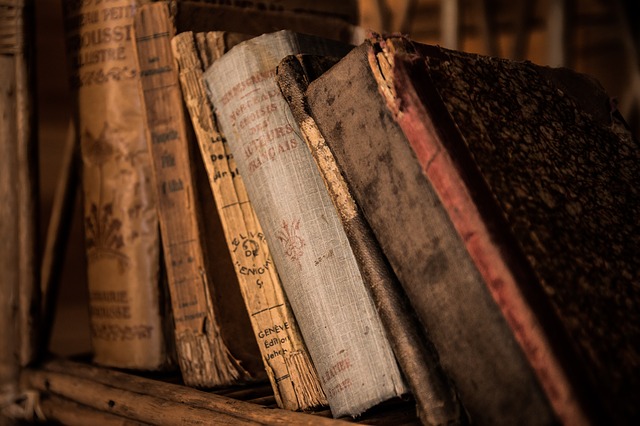
Many readers find plenty of reasons to shy away from non-fiction writing, whether essays, cultural criticism, or academic analysis. But peel away layers of jargon and bluster, and you’ll eventually reach some truly path-breaking ideas. This is a list of 25 path-breaking works that will change the way you see the world. Let us give you 25 reasons to read, and keep reading, non-fiction.
SPQR: A History of Ancient Rome by Mary Beard
Greek and Roman history still inform contemporary philosophy, political theory, and government. Mary Beard writes vividly and compassionately about ordinary Romans’ social and cultural environments and the “great men” whose names appear in history books, making the case for their continued importance.
These Truths: A History of the United States by Jill Lepore
With These Truths, Jill Lepore has produced the first comprehensive one-volume work on American history in more than a generation. Lepore is a keen political observer and an historian of early America. She brings contemporary American anxieties and aspirations to this readable and illuminating account of the American story.
Politics, Culture, and Class in the French Revolution by Lynn Hunt

Even more than American War of Independence, the French Revolution epitomized the spirit of the age and represented the apotheosis of the Enlightenment. Though a bloody and ultimately failed experiment, the French Revolution took a truly radical view of racial and sexual equality, illustrating an ideal of citizenship that many countries would fail to realize until nearly two centuries later.
Sweetness and Power by Sidney Mintz

In a single slim volume, Mintz draws together analysis on capitalism, slavery, consumer culture, food history, and industrial work. Sugar, one of the earliest and most profitable luxury goods first shipped to Europe from the New World, underpinned the burgeoning American plantation system, forever linking consumption and exploitation, early capitalism and slavery.
River of Dark Dreams by Walter Johnson

The Mississippi, the dark river in question, ran through southern planters’ political and economic ambitions, slaves’ dreams of freedom, and capitalism’s increasingly globalized networks. Johnson has written a true opus, a work that unwinds intertwined global economies and nineteenth century American politics while underscoring the paramount significance of enslaved individuals’ brutal lived experience to the viability of emerging industrialism.
The Second Sex by Simone de Beauvoir

In Second Sex, de Beauvoir chronicles women’s social and political oppression through human history. This masterpiece of feminist philosophy helped propel the new wave of women’s rights activism that began in the 1950s and 1960s, which culminated in a slate of precedent-setting judicial rulings and equal rights legislation. Though written in 1949, Second Sex sill stands as one of the most influential feminist texts of all time.
A Room of One’s Own by Virginia Woolf

Virginia Woolf developed this cornerstone feminist text from a series of lectures she delivered at a two women’s colleges in 1928. Woolf’s writing here feels like the earnest advice she delivered face-to-face: women must seek money and space of their own to find creative success.
Gender Trouble by Judith Butler

Contemporary activists’ understandings of gender identity owe a significant debt to Judith Butler’s revolutionary analysis. Individuals constantly perform gender and even biological sex; categories such as “man” and “woman” are ultimately composites of each individual’s experience of race, class, sexuality, and particular cultural milieu. Though the field Butler helped define is called queer theory, her analysis broadly applies to everyone seeking to understand their own identities and environment.
Discipline and Punish by Michel Foucault

The radical changes in penal systems and law that states undertook during the course of the Enlightenment, from public execution and torture toward confinement and discipline, did not stem from humanitarianism. Rather, Foucault argues, states sought to wield their power more strategically, trading spectacular but unstable displays of violence for systems of control that exert increasing force over citizens’ bodies and individuality, as they have become less visible.
Industry and Empire by Eric Hobsbawm

The history of the Industrial Revolution foregrounds the entire globalized modern economy, an epochal process that certainly constitutes one of the most significant events in human history. Britain found itself on the leading edge of industrialization. Hobsbawm explains how and why Britain’s dominance rose and fell, and what their trajectory as an industrial power means for other superpowers that have followed them.
The Making of the English Working Class by E.P Thompson

E.P. Thompson adds a human dimension to the story of the Industrial Revolution and the history of the modern working class. The new working class, having emerged from the rural peasantry, guided their own destiny rather than passively accepting the course of events. Thompson’s work reminds us that modern working people are not ground-down drones, but heirs to scrappy revolutionaries.
The Conquest of Bread by Peter Kropotkin

This foundational anarcho-Communist text will challenge modern readers, taking aim as it does at capitalism’s necessity and inevitability. Kropotkin dares to imagine a completely new society, one without hierarchies, defined by its capacity and willingness to share. Even if you don’t agree with his vision, you might find yourself similarly inspired to challenge the status quo.
Fictitious Capital by Cédric Durand

The rise in public and private debt, exploding financialization, and widespread social assumptions about the nature of value and stability each underpinned the events that led to the 2007-2008 financial crisis. Durand walks readers through a clear and enlightening blueprint to the collapse, its international implications, and its relationship to political power.
Women, Race, and Class by Angela Davis

Race, gender, and class hold enormous political significance, and the intersections and clashes between each of these identities have revolutionary as well as calamitous potential.
The Wretched of the Earth by Frantz Fanon

Fanon’s writings on colonialism’s psychic destruction has influenced countless activists and thinkers for decades, though his name has largely remained unknown to the general public. Decolonization is always a violent process, according to Fanon, but the success of anti-colonialist movements depends on individuals’ cultivation of a national culture and collective self-realization.
Notes of a Native Son by James Baldwin

A literary as well as civil rights icon, James Baldwin remains an essential voice for anyone interested in American identity. Notes of a Native Son constitutes a personal memoir and autobiography of black communities in America, documenting violence and oppression endemic to the black experience but also the potential and power inherent in blackness and black historical experience.
Citizen: An American Lyric by Claudia Rankine

Part essay collection, part poetry, Citizen explores racism in its pervasive and ubiquitous detail, delving into the nature of memory and language as they pertain to black identity. This book is a critical meditation on the contemporary moment - “moving on is not synonymous with letting go.”
Carnal Knowledge and Imperial Power by Ann Laura Stoler

Stoler’s seminal work on the embodied mechanics of colonial power draws heavily on Michel Foucault’s insights on the nature of state control. Stoler argues that racialized social relations and classifications are not not benign givens, but political acts. Stoler’s work constitutes a basic framework for understanding the lived experiences of colonial power.
The Drowned and the Saved by Primo Levi

Most former high school students read Elie Wiesel’s personal account of the Holocaust in Night, but far fewer have read fellow survivor Primo Levi’s thoughts on the subject. The Drowned and the Saved is not a memoir about his imprisonment (see: If This Is A Man), but Levi’s analysis of the phenomena behind the Shoah and the motivations of the Nazis and their collaborators. Levi grounds his reflections more fully than any other writer on the topic in the reality of the human condition, and the brutality, shamefulness, and compromise in the camps.
The Origins of Totalitarianism by Hannah Arendt

Early 20th century imperial expansion required states to accumulate capital and wield ever-expanding political power. Imperialist currents within 20th century nation states, such as the pan-German and pan-Slavic movement eventually gained power and sought to subjugate the political process to the imperial project. The results: Nazism and Stalinism.
Slouching Towards Bethlehem by Joan Didion

American identity splintered some time at the end of the 1960s. Slouching Towards Bethlehem evocatively examines and interprets the places, events, and fleeting scenes that bore witness to the end of the era of free love and revolution.
Against Interpretation by Susan Sontag

Sontag’s breakout work, Against Interpretation contains some of her best-known and most influential essays. In them, Sontag argues for a more sensitive modernism and a return to aesthetic appreciation in the arts (the “erotics of art”) as opposed to strict analysis of content, which Sontag argued strangled artistic experience.
The Mūlamadhyamakakārikā,or The Fundamental Wisdom of the Middle Way by Nagarjuna

Written in the 2nd century C.E. by a quasi-mythical figure, The Mūlamadhyamakakārikā strongly influenced the subsequent development of Buddhism, exploring the essential unreality of all existence, especially the self. This concept, sometimes translated as voidness, is far from nihilistic, however. Instead, reaching the void means utterly dissolving perceived boundaries between the self, others, and the natural world.
Philosophy and the Mirror of Nature by Richard Rorty

Richard Rorty was one of the most significant American philosophers of the last several decades. However, Philosophy and the Mirror of Nature caused substantial controversy among academic philosophers upon its release in 1979 because Rorty urged his readers to abandon traditional philosophical attitudes towards objectivity and truth. The groundbreaking thesis: Truth exists only as collective agreement.
Pilgrim at Tinker Creek by Annie Dillard

Dillard has said that she considers Pilgrim a work of theology; critics have called her the Henry David Thoreau’s true heir. An immersive meditation on solitude, the natural world’s amorality, and transcendentalism, Pilgrim is best read outside and near water, where your hands can reach grass and feel life.
What’s your favorite books with big ideas? Let us know in the comments!

